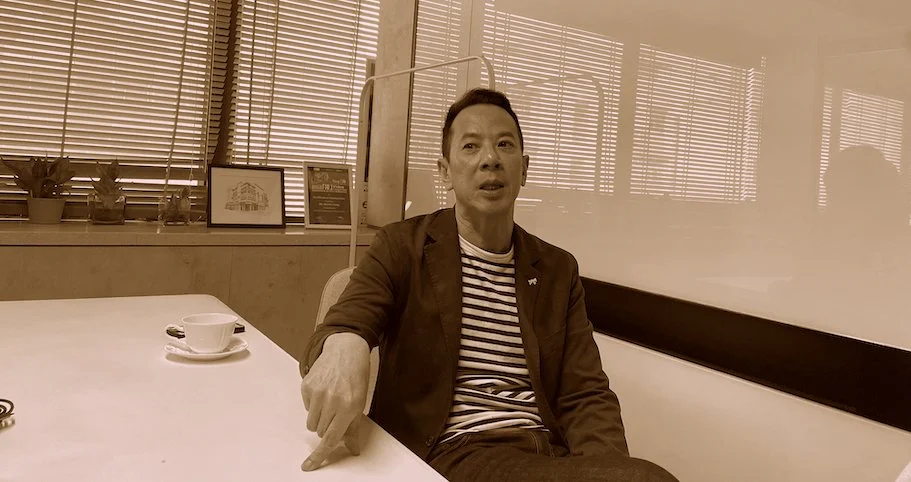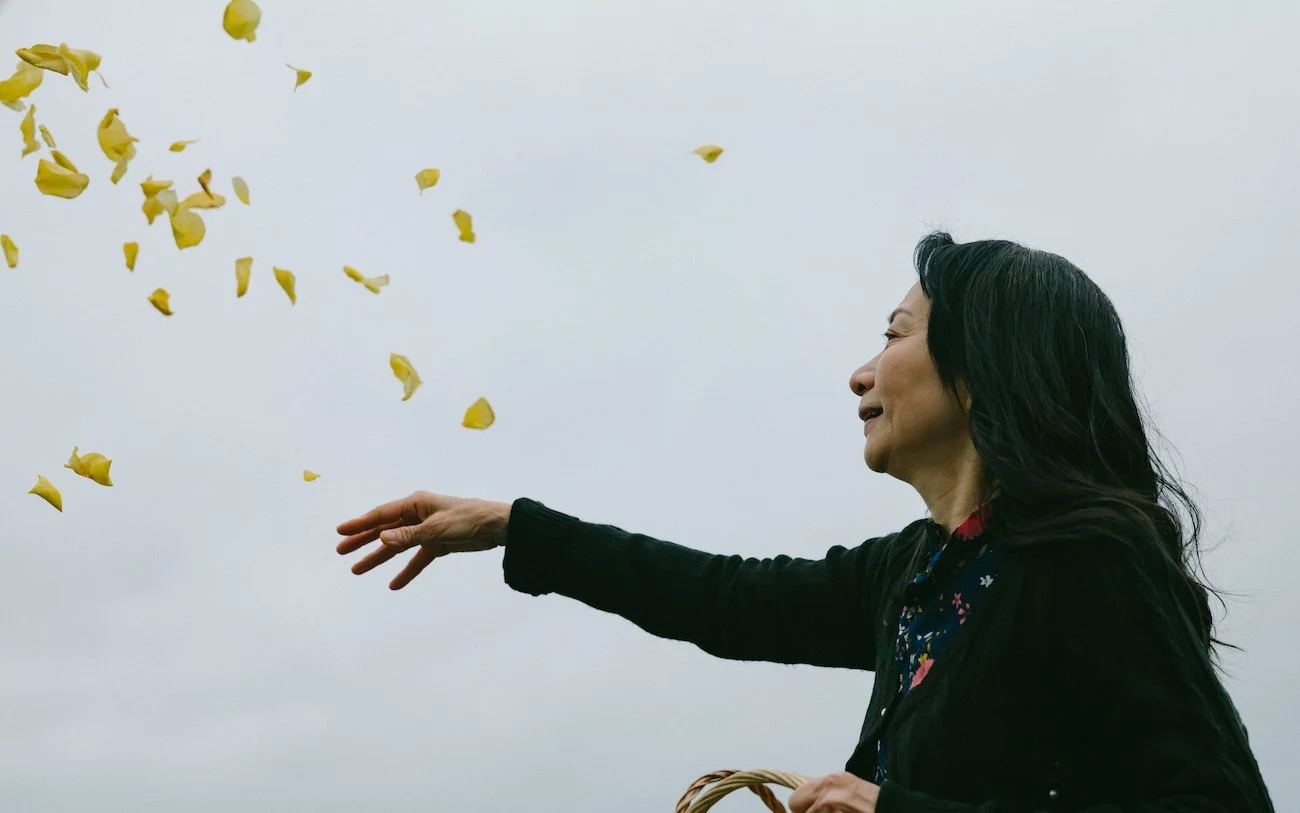‘Well’ Wishes
Fresh off a Teddy win at Berlin, Ray Yeung gets ready to drop the most gently raging film of the year so far.
“I wasn't sure I was getting it right. On top of that I wasn't writing a straight woman either, who, you know, in some way there are similarities,” writer-director Ray Yeung Yiu-hoi jokes about the women at the centre of his latest film, All Shall Be Well | 從今以後. Writing a family drama where the central character was a lesbian was a tiny challenge; at least he has something in common with straight women. “We both fancy men! I get you!” He straight-up laughs now. The film is the next entry into the SSCU – the Suk Suk Cinematic Universe. Okay, that’s not a thing; it just so happens both films co-star Tai Bo. Suk Suk, about two semi-retired Hong Kong men who makes a connection late in life, racked up nine Hong Kong Film Award nominations, as well as five Golden Horse nods – but came away from Taipei empty-handed. “We didn't win anything. And I spent money on learning Mandarin, and I didn’t get to use it,” Yeung laughs again. “I had four lessons left and I gave them to a friend, I was so upset. I didn't care. If there’s a next time I'm going to speak in Cantonese.”
In all seriousness, ASBW is very serious in its exploration of how LGBTQ+ people get shafted by the long-standing traditions, culture and laws that govern inheritance rights in Hong Kong. But it’s also very serious in its exploration of masculinity and the kind of grief that anyone would feel after the death of a long-term partner – married or common law, gay or straight. The film asks viewers to imagine compounding that grief with being thrown out of a home shared with this partner. Yeah. Ice cold, but it’s the law.
Yeung is pretty relaxed on this day in March. It’s before ASBW opens the 48th Hong Kong International Film Festival, but after he came away from the film’s Berlin world premiere with a Teddy Award (take that, Golden Horse) for the festival’s outstanding LGBTQ+-themed film (topping the likes of Rose Glass’s glossy Love Lies Bleeding among 36 others). Yeung’s lapel is adorned with a tiny Berlinale bear pin. That’s not a flex; that’s now how Yeung rolls. The idea for the film came back around 2019 after attending a talk on inheritance rights for LGBTQ+ people – which yes, is made even harder by the fact LGBTQ+ people can’t legally get married in Hong Kong. While there have been several, High Court decisions in recent years affirming equal rights for same-sex partners – a British woman won eligibility for her wife’s spousal visa; Scott Adams and Angus Leung won a victory in 2019 for spousal tax benefits; Henry Li won the same inheritance rights as straight couples on an appeal – nothing is quite written in stone, which renders ASBW timely as well as heartbreaking.
“Henry Li's been making some progress. The verdict was on his side both times, so to some extent it means if you marry overseas you can have inheritance rights,” says Yeung. “The court has been handing down verdicts and judgments on the side of the LGBTQ+ community, but it’s the government that doesn't want to endorse them. I just really wanted to bring up the topic and remind audiences, or hopefully society, that … we don’t want more rights. We just want to have the same rights. This doesn't just affect the LGBTQ+ community and everybody surrounding them. Everybody knows someone LGBTQ+ … The government has taken [Li’s case] to the Final Court of Appeal. So we’ll see how it goes.”
All Shall Be Well follows the gutting path Angie Wang (Patra Au Ka-man, The Narrow Road) finds herself on after her partner of 30-odd years, Pat Wu (TVB veteran Maggie Li Lin-lin), quite suddenly passes away. The two lived in a sprawling (by Hong Kong standards) flat on Waterloo Road, and because they weren’t married, and Pat never signed the will she was working on, the estate goes to Pat’s older brother, Shing (Tai Bo). Shing and his wife Mei (Hui Siu-ying) have two kids, son Victor (Leung Chun-hang, In Broad Daylight) and daughter Fanny (Fish Liew, A Guilty Conscience), both of whom could use a bigger, better flat. So could Shing for that matter. Suddenly catapulted to “head of the family”, Shing is torn between Mei’s legal as well as superstitious demands they take possession of the flat, throw Angie out – What? She can go live with her parents in the New Territories – and inter Pat in a columbarium, against her wishes. Wishes that Angie knows in her bones but can’t prove. ASBW is very serious. It’s also infuriating and frustrating.
Anger is “Partly the right feeling, because that’s how frustrating it is,” Yeung agrees. “All these people in that situation have that feeling. Because suddenly, you're being thrown out, and all your rights are stripped away, or you realise that you actually had no rights at all. And then you really have nothing to fall back on.”
Despite the initial knee-jerk instinct to loathe the Wus with every fibre of one’s being, Yeung’s script makes them more empathetic than a melodrama would demand, something he actively decided to avoid during the research process. Yeung listened to story after grim story about the way long-term partners were treated by what they thought was family, about being forced to ask for a dependent’s allowance and relegating themselves to pet status, or losing sentimental (or valuable) possessions “for the funeral” in a matter of days, about being alienated and expelled, and how relationships could change overnight. Including that kind of super-villain behaviour would be reductive, and he didn’t want audiences to be unable to relate to the Wus entirely.
“I want the audience to put themselves in that family's shoes and start thinking, ‘If I were them, would I let her have the apartment?’, and examine themselves and ask how homophobic they are.”
It’s easy to kid around with Yeung about “getting” straight women, but there’s a reason the main characters of ASBW are women partners.
“In Hong Kong, particularly in this age group, a lot of times women, lesbians, seem to be more accepted by the families because they're less threatening. They’re seen as less ‘gross’, less disgusting than men,” Yeung says with a shake of the head. The concept of two single women looking for a companion in their golden years is harmless and perfectly logical, and can be embraced – to a degree. And because ASBW is really about the sudden disconnection and stripping of rights the story had to pivot on women. Two men, Yeung guesses, would never be embraced as much. “The story demanded Angie’s naïveté in believing she had this family.” And before anyone thinking, “How dare a man write a woman’s character!” throws a fit, Yeung points out that 1) he had plenty of input from lesbians, especially about Angie’s (initially) solitary life outside the Wus. He was told in no uncertain terms that would never happen; 2) ASBW isn’t about Angie’s emotional life, it’s a family drama that cuts across sexuality, age or race. And Yeung gets it. “Being an Asian gay man and seeing movies or TV series written by straight white men.” He shakes his head. “Hey, call me to write that, because this is so cliché.”; and 3) Telling artists what they can and cannot write smacks of absolutism. Who’s going to tell Pedro Almodóvar to stop writing women? “If you're too far into that you may be limiting someone’s talent,” Yeung adds.
Something he does know is the traditional Chinese family dynamic, which also goes under the microscope, particularly as it applies to how men are expected to behave in a 21st century patriarchy, where the ground is shifting under their feet. Victor is Angie’s ally until he sees a way to elevate his weak breadwinner status. Fanny could use more space so that her husband might be inspired to get sexy again. Above all, Shing finds himself as the Wu family decision-maker, at a time when he’d rather just cry over his dead sister. A fact everyone often forgets.
“A lot of the times men are not allowed to grieve,” Yeung points out. “Even when [Shing] is talking to his wife, and is maybe looking for some comfort, she's just, ‘Well, she had a good life.’ And it stops him instantly.”
So what’s next? Possibly another examination of issues impacting LGBTQ+ Hongkongers, but then again it might be time to do something more commercial. A comedy perhaps. The idea appeals to Yeung for being a challenge way tougher than writing a lady. “I don't know whether anybody will believe I can do something like that,” he chuckles. “No one had much confidence in this, seeing as it took four years after Suk Suk.” And for the record, yes. Yeung has a long-term partner. And a will.
All Shall Be Well opens on May 1. — DEK





